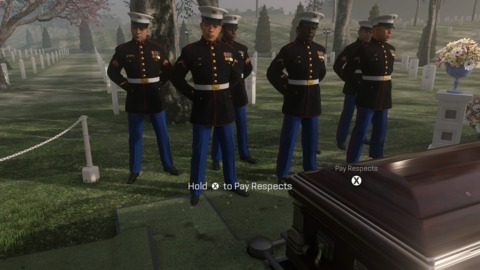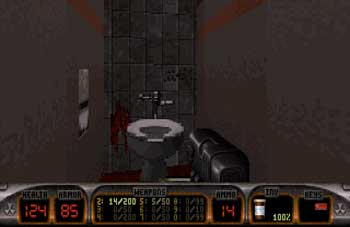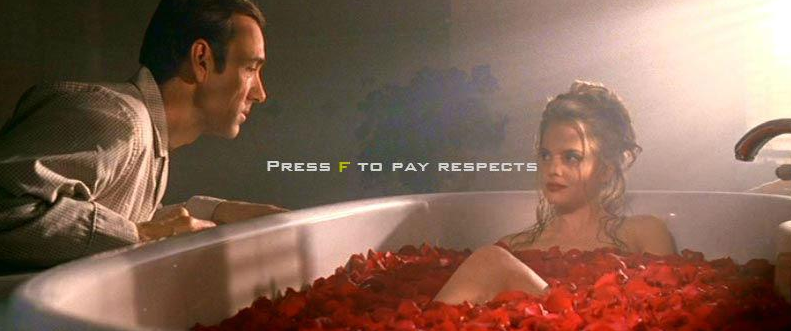Everyone has an opinion on the Call of Duty games, even if the opinion is not having an opinion. As gaming's biggest annualized franchise, the release of a new Call of Duty prompts plenty of chatter, snark, and thinkpieces. While some are talking about how Sledgehammer Games appears to have breathed new life into the aging franchise, others can't get over a screen shot that made the rounds on Sunday.

This moment takes place in the first hour of Call of Duty: Advanced Warfare, as Sledgehammer sets the stage for yet another bombastic single-player campaign. Some mild plot spoilers follow.
Privates Jack Mitchell (the player) and Will Irons are sent to Seoul, South Korea to push back on a North Korean invasion. The two are friends, and have been fighting alongside one another for years. At the end of the mission, their objective in sight, Irons gets his arm trapped in an aircraft that's about to take off. Worse, Irons had just placed a bomb inside it. They're unable to dislodge Irons' arm, prompting Irons to push Mitchell into safety. The aircraft explodes.
The next scene opens at a military funeral for Irons. After a short speech, several people approach the casket, including Kevin Spacey's character, Jonathan Irons. Eventually, you're given control over Mitchell, but there's only one option to move the game along. Mitchell needs to approach the casket and, as the game instructs, "pay his respects." It's an incredibly clumsy handling of an early emotional beat.
Or is it?
OK, it is. But I don't know if it deserves the dogpiling that's surrounded it. Call of Duty is an easy target, so everyone wants to get a punch in. Call of Duty has never tugged at our heartstrings, and Advanced Warfare isn't setting the series bar much higher. But a Call of Duty game giving players an opportunity to pay their respects to a fallen comrade, even if it's placed within this pseudo-futuristic interpretation of America, is interesting. It suggests the storytelling happening in smaller games might be rubbing off.
It's also not the first game to command eyerolls for a contextual action. It was only a few years ago Homefront bizarrely asked players to "press x to hide in mass grave." It's true. That was probably way worse. There's also the "press X to Jason" meme from Heavy Rain. Players could press the X button over and over, prompting the main character to endlessly and awkwardly yell for his lost son.
Contextual actions are tricky. More games are trying to ditch traditional cutscenes, sections where players might be tempted to put down the controller. Now, more games are giving agency during quieter moments focused on storytelling. That's what Sledgehammer was trying (and failing) to do here. It's easy to imagine a scenario where the player is never asked to do anything. It's pretty common for "interactive" cutscenes to be little more than a guided walkthrough where the player can move the camera to look around them.
Advanced Warfare's mistake was calling a spade a spade. "Press X to pay respects" reads like developer lingo. It describes the action in such a literal manner, it's impossible to take seriously, so it falls flat.
But as players, we've been trained to interact with the world around us.
When I play a new game, the first question I want answered is whether the toilets can be flushed. It's weird, but it answers a bunch of questions about the game's design goals. Is this the kind of game where the designers expect me to explore everything around me, or should I stick to the path and see what lies ahead? The toilet question gets right to the heart of it, albeit it doesn't work every time. You're supposed to explore in Alien: Isolation, but the toilets are static. (Why else do you think it didn't get five stars?)

Call of Duty has never been this type of game. It's straightforward. Hide in cover, shoot the guys, keep moving. You might look around to search for hidden intel to unlock some bonuses, but it's largely about progression. There is no lingering and taking in the scene around you. Keep shooting. It's a perfectly valid approach, but one that runs into problems when the tone changes, and the action needs to slow down. Call of Duty's design ethos probably explains why "press X to pay respects" even exists. The game's afraid you'll turn around and leave before paying your respects. The player may not want to, but the designers want you to. The big, floating symbol is the carrot. Who can resist pushing it? Anybody would.
With "press x to pay respects," players have only been given a tiny window into the relationship between these two soldiers. It's hard to build an emotional bond when the minutes spent building said bond can be measured on one hand, and most of the time is spent learning the game's fancy new features. What if the moment had been completely optional? What if it was one of several private moments Mitchell could have experienced during this scene, a way of emotionally contextualizing the character's response?
There are ways to imagine the slightly different, more effective scene, especially since the rest is excellent. I've only played a few hours of Advanced Warfare, so I have no idea whether the story's worth caring about, But as the video above shows, how it transitions to the next mission is wonderfully jarring.
Advanced Warfare employs the most blunt tool possible to achieve its goal, but in doing so, undermined its emotional arc by being tone-deaf. It probably won't be the last game to fumble a contextual action, but maybe it'll prompt games to device better ways to incentivize players to participate.
Of course, maybe Alex Navarro had the right idea all along:
